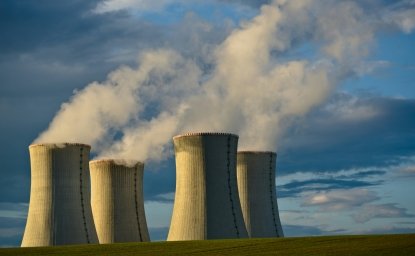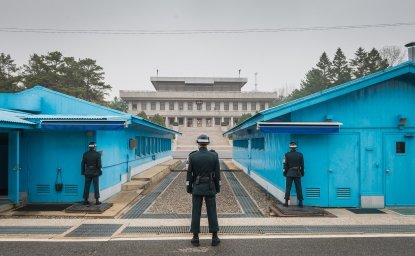Brazilian Nuclear Cooperation with the People's Republic of China


In the early 1980s, Brazilian nuclear activities were facing stark challenges. The 1975 Brazil-West German nuclear cooperation agreement had inspired strong opposition from the US and elsewhere. The landmark agreement provided for reactor construction and the transfer of uranium enrichment and plutonium reprocessing capabilities that would give Brazil mastery of the entire nuclear fuel cycle. Officials in Washington viewed the agreement as a major proliferation risk.
Faced with severe international pressure, the West German-Brazilian nuclear cooperation agreement had already begun to weaken as the US pressured West Germany to be more restrictive in its technology transfers, in order to prevent Brazil from using West German nuclear technology to build a bomb. In response, by late 1978 General Ernesto Geisel, then president, had authorized a covert parallel nuclear program, which would allow Brazil to master the nuclear fuel cycle outside of international safeguards.
By 1987, when President José Sarney announced to the world that Brazil had finally mastered the fuel cycle and could enrich uranium, these independent, clandestine Brazilian efforts appeared to have been vindicated in the eyes of many Brazilians. Brazil’s uranium enrichment capability was – and remains – lauded as the result of indigenous technological development.
However, the new evidence uncovered by FGV researchers on the activities of Brazil’s nuclear program reveals that it received more than a little international ‘assistance’ in its nuclear endeavors. As once-secret documents and oral history interviews with key former Brazilian scientists and officials show, Brazil sought to circumvent international legal and political obstacles by clandestinely purchasing crucial materials and know-how on the nuclear black market, and from countries such as China.
In the 1970s and 1980s, China was possibly the most active provider of nuclear assistance to developing countries, having reportedly aided nuclear programs—both civilian and military—in Argentina, Brazil, Iran, Libya, North Korea and Pakistan, among others. In December 1982, then-president of the National Commission on Nuclear Energy (CNEN), Rex Nazaré, headed a mission to China with the objective of purchasing enriched uranium from the China National Nuclear Corporation [Document 1].
The exact contours of this purchase remain unclear. According to an advisor with the Brazilian National Security Council at the time, Brazil hired Chinese enrichment services for its own natural uranium. There are indications that the material was delivered to China sometime in 1984 or early 1985 (but definitely after President Figueiredo’s May 1984 trip to Beijing). According to various sources, Brazilian cylinders of uranium hexafluoride were taken to China and returned in a container (allegedly) carrying porcelain purchased by the First Lady during the presidential trip. The material was later stored at the IPEN research facility in São Paulo, where the Brazilian Navy was developing technology for uranium enrichment and reactor construction with the ultimate official goal of building a nuclear-propelled submarine. Also uncertain is the level to which level the Chinese uranium was enriched: interviewees confirm that it was Highly Enriched Uranium (HEU), but differ as to whether it was weapons-grade (around 90%), as suggested by two sources, or merely above 20%, as claimed by a third.
This divergence is relevant because it plays a major part in the ensuring narrative regarding the intended use for this material. According to some sources, sectors in the military wanted to use the uranium enriched in China to test a small nuclear device following the Indian example of a decade earlier. Another source goes further to argue that President Sarney’s 1987 announcement of indigenous enrichment capability was a bluff, as the only enriched uranium Brazil had at the time was the material enriched by China.
There are other aspects of the China-Brazil nuclear partnership that have yet to be clarified. President Figueiredo’s trip to Beijing in 1984 included the signature of an agreement for cooperation on the peaceful uses of nuclear energy, which also contained secret clauses. The available documentation indicates that both countries were optimistic about the future of their cooperative relationship, yet no evidence on other joint activities in this area has been found so far. This fits with general accounts of China-Brazil relations during this period, according to which attempts at engagement in various issue areas did not meet with success. It is noteworthy that this pattern is strikingly similar to the record of the Argentina-China connection in the same period. According to a former chief of international relations of Argentina’s Nuclear Commission, (CNEA) and other interviewees, Argentina made isolated purchases of Chinese uranium and heavy water around 1982-1983; and was aware that Brazil had a similar relationship with China at the same time [Document 2, Document 3].
One source affirms that it was the Fernando Collor administration (1990-1992) that put an end to the secret nuclear cooperation with the Chinese. A highly-placed official, in his interview with FGV researchers, recalls being approached by Chinese delegates, who wanted to resume contacts on the nuclear issue, at the IAEA in the early 1990s.
There are reports of additional Sino-Brazilian cooperation on missile technology starting in 1984 with President Figueiredo's visit to Beijing. The Chinese and Brazilian leaders also set up a partnership for development of the China-Brazil Earth Resource Satellites in 1988, but the exact scope and extent of this cooperation, especially its military applications, need to be explored further.
Document 1: Brazilian Purchase of Uranium from China and the Cooperation Agreement, Informação para o Senhor Presidente da República 102, 4 April 1984
Source: Obtained and translated by Fundação Getúlio Vargas.
Memo from Foreign Minister Saraiva Guerreiro to President João Batista Figueiredo on the current state of, and potential for the future of nuclear cooperation with China, in the follow-up to the presidential visit to Beijing. Guerreiro recalls that, since China was also not a party to the NPT, nuclear cooperation and purchase of material, like the uranium acquired in 1982, would not be subjected to full-scope safeguards, preserving the “sovereignty of Brazil’s nuclear program.” Guerreiro mentions a study by the National Security Council, the Nuclear Commission, Nuclebrás and the Foreign Ministry on the commercial and technological potential for an agreement with China, similar to the ones that Brazil had already signed with “other developing countries, namely those that are not members of the NPT”. One such agreement, Guerreiro suggests, could be signed during President Figueiredo’s upcoming visit to Beijing.
Document 2: Oral History Interviews
Several interviews with key officials, covering the 1980s and early 1990s reveal that nuclear cooperation with China was established largely as a consequence of international restrictions on Brazil’s access to technology and material, and as a way to circumvent its own technical impediments. An international relations officer of Argentina’s Nuclear Commission states that Argentina had similar deals with China at that time.
Document 3: Brazil and China deny charges of nuclear proliferation, 24 October 1985
Source: Telegrama ordinario, cable 1674, arquivo argentino
This telegram from the Argentine Embassy in Brasilia reports on US Senator Alan Cranston’s claim that China was proliferating nuclear technology to countries like Argentina, Brazil, Iran, Pakistan, and South Africa. The telegram reports that both Brazil’s Foreign Ministry and China’s Embassy in Brasilia denied the charges. Part of the telegram is hand-highlighted, where a Brazilian diplomat says that the only deal between China and Brazil was the one signed by President Figueiredo during his visit to Beijing in 1984. As this dossier shows, however, judging by the extent to which Brazil and Argentina have proceeded with their nuclear programs, the Senator's reproaches were well-grounded.
Disclaimer: This dossier is the result of an ongoing research on the international history of Brazil’s nuclear program. The above historical narrative and selection of documents and oral history interviews might be updated as new and relevant evidence is uncovered.
Author

Nuclear Proliferation International History Project
The Nuclear Proliferation International History Project is a global network of individuals and institutions engaged in the study of international nuclear history through archival documents, oral history interviews, and other empirical sources. Read more


History and Public Policy Program
A leader in making key foreign policy records accessible and fostering informed scholarship, analysis, and discussion on international affairs, past and present. Read more




